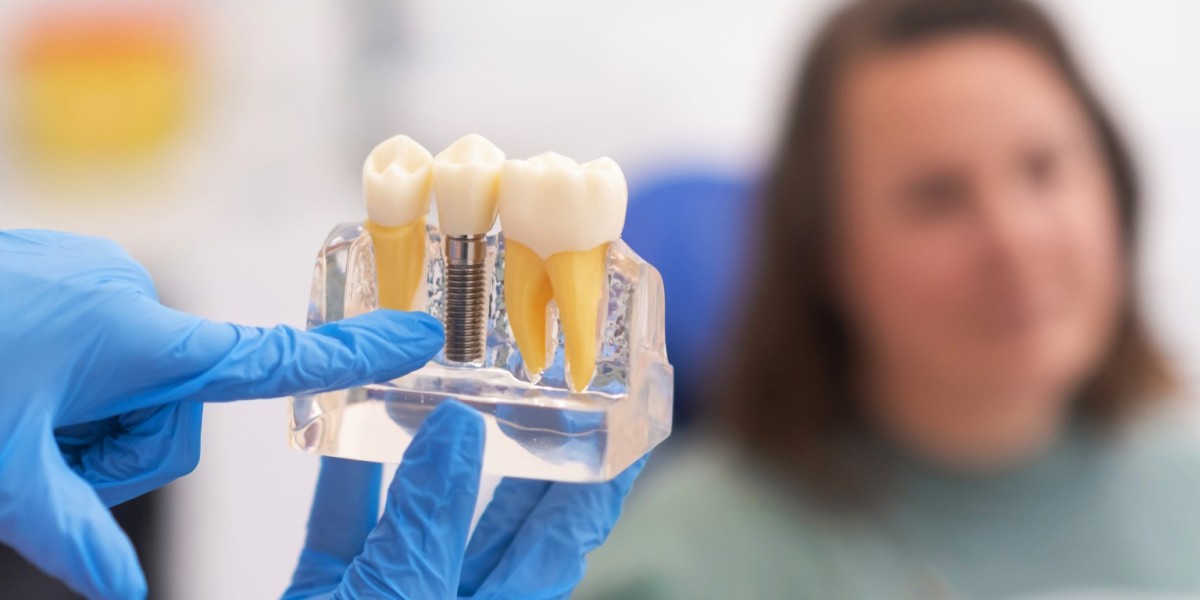Dental implants are one of the most reliable and long-lasting solutions for missing teeth. However, like natural teeth, they require consistent care and maintenance to ensure they remain functional and aesthetically pleasing. If you’ve recently received or are planning to get Dental Implants in Islamabad, adopting good oral hygiene practices is essential to preserve your investment and avoid potential complications.
In this detailed guide, we’ll cover everything you need to know about maintaining oral hygiene with dental implants—from brushing techniques to dietary considerations, and from regular checkups to lifestyle changes.
Why Oral Hygiene is Crucial for Dental Implants
Even though dental implants are artificial, the surrounding gum tissue and bone are very real—and susceptible to infection and disease. A lack of proper hygiene can lead to peri-implantitis, a condition similar to gum disease, which may result in bone loss and implant failure.
Proper oral care helps:
Prolong the lifespan of the implant
Prevent infection and inflammation
Maintain fresh breath and clean appearance
Support overall oral health and stability
Step-by-Step Hygiene Guide for Dental Implant Care
1. Brush Twice a Day with the Right Technique
Use a soft-bristled toothbrush or an electric toothbrush to clean your teeth and implants. Focus on the following:
Angle the brush at 45 degrees toward the gum line
Gently brush in circular motions
Pay extra attention to the implant areas
Brush for at least two minutes, twice a day
Avoid hard-bristled brushes as they can scratch the implant surface and irritate the gums.
2. Use Implant-Friendly Toothpaste
While fluoride toothpaste is generally recommended, avoid highly abrasive products. Instead, look for:
Low-abrasion toothpaste
Products designed for sensitive gums
Toothpaste with antibacterial properties
Always read the label or consult your dentist before using any new product.
3. Floss Daily Around the Implants
Food particles and plaque can get stuck between your implants and natural teeth. Flossing removes debris and reduces the risk of gum inflammation.
Options include:
Implant-specific floss (like tape or woven types)
Water flossers (oral irrigators)
Interdental brushes (soft and non-metallic)
Use gentle movements to avoid harming the gum tissue or dislodging the crown.
4. Rinse with Antibacterial Mouthwash
Mouthwash is an excellent addition to your routine. Choose an alcohol-free, antibacterial rinse to:
Kill germs
Reduce plaque buildup
Freshen breath
Sooth gum tissue
Avoid overuse, as it can disrupt the natural oral microbiome. Once or twice daily is sufficient.
Dietary Habits That Support Implant Hygiene
What you eat significantly impacts your oral health, especially when you have dental implants. Consider the following dietary tips:
Limit Sugary Foods: Sugar promotes plaque buildup and gum irritation.
Avoid Hard and Sticky Foods: Nuts, ice, and candies can damage the crown or implant surface.
Eat a Balanced Diet: Include calcium-rich and vitamin D-packed foods to support bone and gum health.
Stay Hydrated: Water helps wash away food particles and supports saliva production.
A clean diet complements your oral hygiene routine and supports the longevity of your implants.
Regular Dental Checkups and Professional Cleanings
Dental implants require ongoing professional care, even when your at-home hygiene is excellent.
Visit your dentist in Islamabad every 6 months (or as recommended) for:
Implant evaluation and X-rays
Deep cleaning around implants and gumline
Monitoring for signs of peri-implantitis or inflammation
These checkups can help identify problems early and ensure your implants stay secure and functional.
Avoid Tobacco Products
Smoking and other tobacco use is a major risk factor for implant failure. It affects gum health, slows healing, and increases the chance of infections.
Quitting tobacco:
Improves implant success rates
Enhances healing post-surgery
Promotes overall oral and general health
If quitting is difficult, consult a healthcare provider for support or cessation aids.
Recognize Early Warning Signs
Stay vigilant and monitor your mouth for any changes. Report to your dentist if you notice:
Redness or swelling around the implant
Bleeding while brushing or flossing
Bad taste or breath that doesn’t go away
Loosening of the implant or crown
Early intervention can save your implant and prevent further complications.
Use Night Guards if Necessary
If you grind your teeth (bruxism), especially at night, you may be putting excessive pressure on your implants. A custom-made night guard can protect both your implants and natural teeth from damage.
Night guards:
Distribute bite force evenly
Prevent chipping and wear
Improve sleep and jaw comfort
Speak with your dental care provider if you suspect teeth grinding or clenching.
Special Care During the Healing Phase
Immediately after your implant surgery, your mouth is especially vulnerable. During this time:
Follow all post-op instructions carefully
Avoid brushing the surgical site for a few days
Use saltwater rinses if recommended
Eat soft, non-irritating foods
Good hygiene during healing sets the foundation for successful implant integration.
Consider Using Additional Oral Hygiene Tools
Enhancing your daily care routine with advanced tools can make a difference. Useful devices include:
Electric Toothbrushes: Timed cleaning and better plaque removal
Water Flossers: Easier access to hard-to-reach areas
Interdental Brushes: For gaps between teeth and implants
Tongue Scrapers: To reduce bacteria and improve breath
Be sure to use them properly and as advised by your dentist.
Keep Implants Clean While Traveling
Maintaining your oral hygiene while traveling is just as important. Prepare a small dental travel kit including:
Compact toothbrush and toothpaste
Floss or floss picks
Travel-sized mouthwash
Sugar-free gum to stimulate saliva if brushing isn’t possible
Staying consistent with your oral hygiene routine, even while away from home, keeps your implants healthy.
Conclusion
Dental implants are an excellent, durable option for restoring your smile, but their success depends heavily on your daily care. By following a structured hygiene routine, making thoughtful lifestyle choices, and staying in regular contact with your dental provider, you can ensure the longevity and functionality of your Dental Implants in Islamabad.
Remember, oral hygiene is not just about clean teeth—it’s about protecting your health, confidence, and investment for years to come. Adopt these practices today, and your implants will continue to look and feel just like natural teeth.


